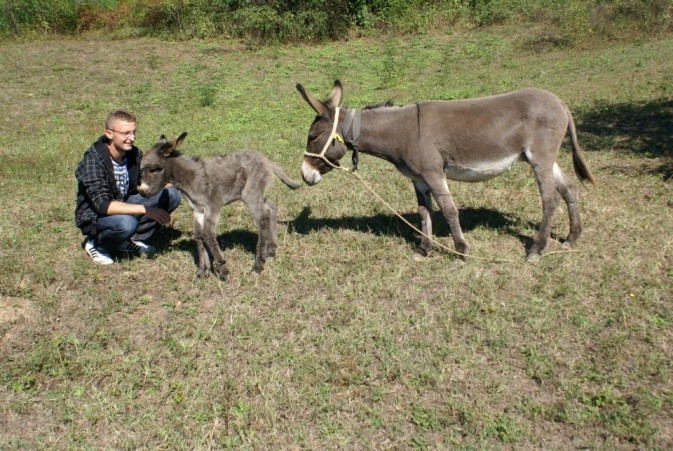
Alen Jusupović, a 23-year-old student of agricultural engineering in Sarajevo, was intrigued by the idea of starting a donkey farm after learning that a similar business was thriving in neighboring countries. In 2012, he set out to have the first in Bosnia and Herzegovina (BiH).
It was by accident that he signed up for a USAID program to support would-be student entrepreneurs like him. Turns out, it was a smart move. A year later, Jusupović had his own money-making farm.
"I was excited, and I wanted to start it,” says Jusupović. He surfed the Internet to see if anyone else in BiH had a business to sell donkey milk products, and it was there he learned about the “I Have an Idea” program, part of USAID’s Student Entrepreneurship project. The program offered university students in Sarajevo, Banja Luka and Mostar assistance in developing a solid business plan, followed by an awards contest for the nine best plans.
When he went before the awards committee, Jusupović says he was prepared to be ridiculed when he described his idea for milking female donkeys. The committee did laugh a little, he says, but he managed to convince them that his idea was viable.
Donkey milk is rich in vitamins A, B1, B2, B6, C, D and E, and has regenerative and healing properties for people with bronchitis, psoriasis and other skin disorders. Cleopatra, queen of Egypt, is said to have bathed in donkey milk every day as a beauty treatment. More recently, studies show that donkey milk is a good alternative to cow’s milk for children with milk protein allergy.
“The market potential is huge,” says Jusupović. “For now, we are selling only pure milk—my consumers are ordinary people who have bronchial problems—and our new product is homemade soap. We have a lot of ideas for new cosmetic products, but for now we have only soaps.”
Jusupović was one of nine students or student teams—out of 586 program participants—who won a cash award for the Best Student Business Plan contest in September 2012. Each received $4,000 and technical assistance to get started. The seed money was enough for Jusupović to register the farm as a business and to buy his first donkey two months later. Soon after, he was producing donkey milk for sale: One liter of donkey milk sells for 50 euros. Soap sells for 7 euros per bar.
Still, not everybody liked the idea of having a donkey farm in the neighborhood. Many people living near the farm site in Zavidovici were strongly opposed to it.
“I live in town with my family and, in order to guard the plot, I had to live in a tent for three months. Then people were laughing because we had only one donkey and a guard dog.” Jusupović says.
But he kept building his business. After the competition, he started a marketing campaign through Facebook. “This created a buzz in the media, and they were the wind at my back,” he says.
By the end of 2013, Jusupović had five donkeys. But he plans to have a hundred milking donkeys on his farm and sell his products in Croatia and Serbia. He hopes to get a tractor someday too. “Today we are doing everything without any machines, and it is very hard," he says.
The Student Entrepreneurship project, which runs from September 2011 to September 2014, provides BiH students with training, technical assistance, access to affordable financing, and advice throughout the start-up period of their businesses.







Comment
Make a general inquiry or suggest an improvement.